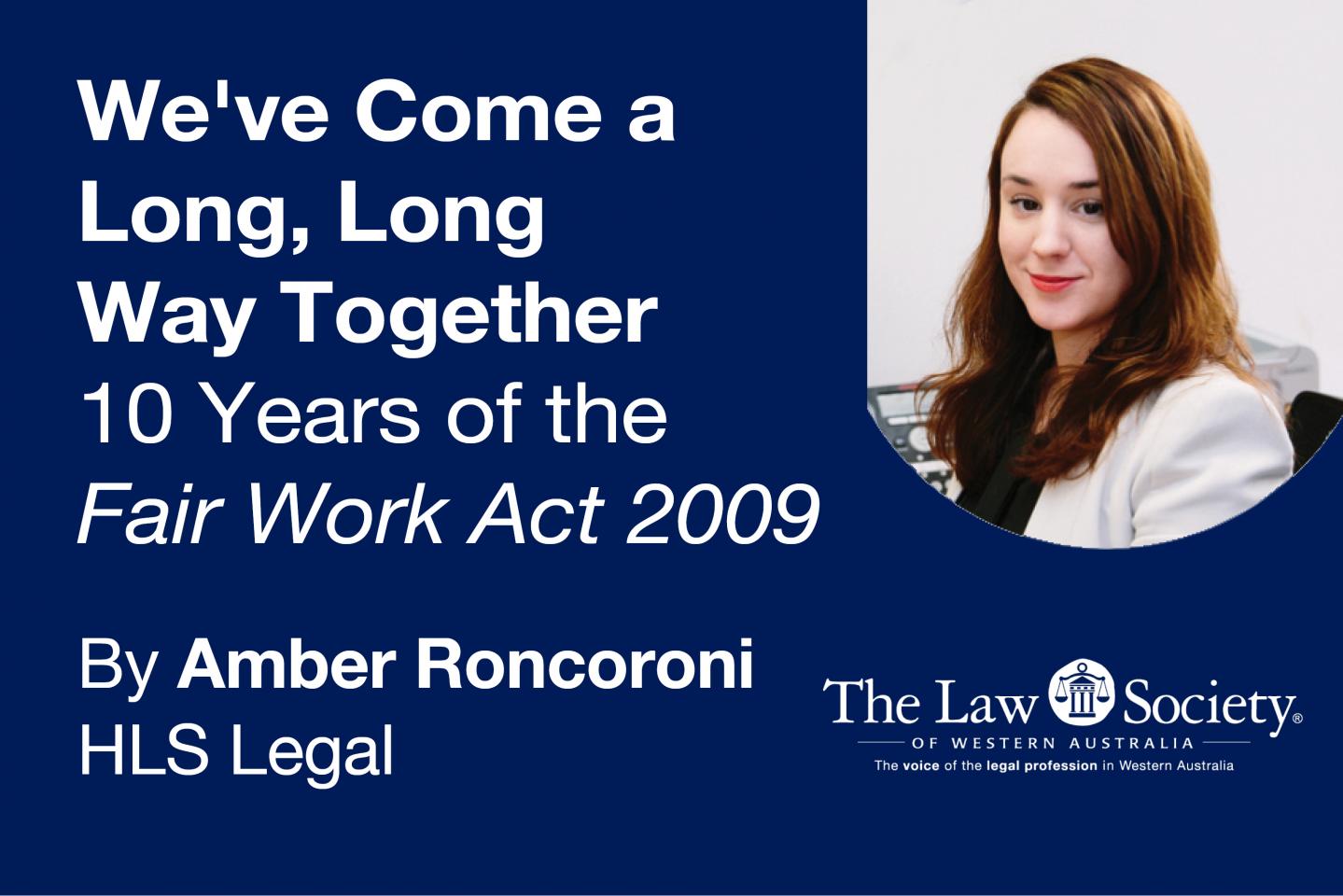

Writing for the Law Society of Western Australia, Amber Roncoroni of HLS Legal reflects on 10 Years of the Fair Work Act 2009.
This year marks the 10 year anniversary of the commencement of key parts of the Fair Work Act 2009 (Cth) (the Fair Work Act) including the unfair dismissal and general protections provisions. In this article we reflect on the Fair Work Act and what the key cases have taught us about the Fair Work Act.
The impact that the Fair Work Act has had on employment law in the last 10 years cannot be understated.
The Fair Work Act has governed employment law in Australia during a period of significant change to the Australian economy, politics and technology.
In these respects:
- The mining and construction sectors have expanded and contracted.
- The Labor Party, which introduced the Fair Work Act, was replaced by the Coalition at the Federal level in 2013.
- Use of social media has become prolific and its impact on work has grown. For instance, according to the 2018 Yellow Social Media Report, 93% of 18-29 year olds and 90% of 50 to 64 years olds in Australia maintain a Facebook profile.
- The CFMEU and the MUA merged to create the CFMMEU super union.
With this in mind, it is an appropriate time to ask: What do we know about the Fair Work Act?
Since key parts of the Fair Work Act commenced on 1 July 2009, there have been approximately 80,000 decisions, including Fair Work Australia/Fair Work Commission decisions, that refer to the Fair Work Act. 19 of these decisions were issued by the High Court of Australia.
Some of these decisions provide guidance on the meaning of the Fair Work Act in respect of key day to day issues.
However, there remain important parts of the Fair Work Act which are untested and unclear.
Understanding these can assist with navigating the Fair Work Act moving forwards.
Click here to read the full article, which was originally published in the October 2019 edition of the Law Society of Western Australia's Brief journal.
The Law Society of Western Australia is the peak professional association for lawyers in WA. The Society is a not-for-profit association dedicated to the representation of its more than 4,000 members. The Society enhances the legal profession through its position as a respected leader and contributor on law reform, access to justice and the rule of law. The Society is widely acknowledged by the legal profession, government and the community as the voice of the legal profession in Western Australia. Find out more at www.lawsocietywa.asn.au.






